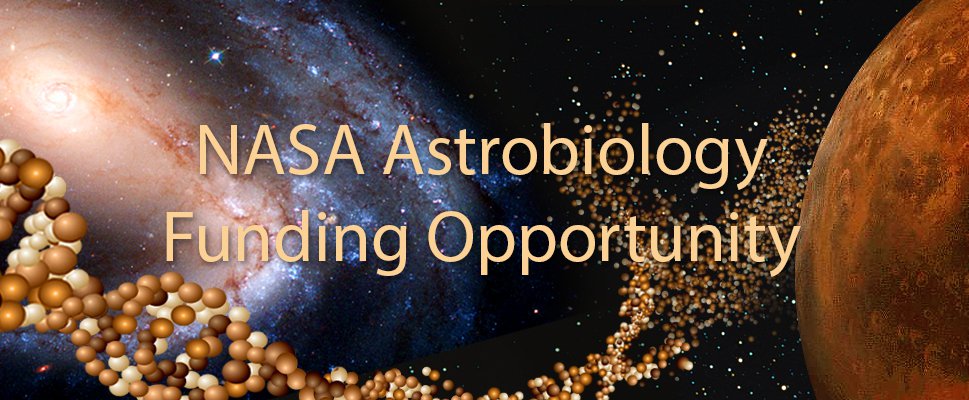Written byJulie Fletcher

April 28, 2016
Feature Story
The NASA Astrobiology Program announces selections from two funding opportunities

The NASA Astrobiology Program and the NASA Astrobiology Institute are pleased to announce the selections from two funding opportunities.
The NASA Postdoctoral Fellowship Program selected two Fellows from the November 2015 opportunity:
- Barbara Lafuente Valverde
Advisor: Thomas Bristow, NASA Ames Research Center (Habitable Worlds)
Topic: Use of clay minerals as paleoenvironmental indicators of the origin of Ediacaran multicellular life in the Doushantuo Formation
- Kazumi Ozaki
Advisor: Chris Reinhard, Georgia Institute of Technology (NAI, University of California, Riverside team)
Topic: New Quantitative Approaches Toward Understanding The Life History Of An Inhabited Planet
From the April 2016 NASA Astrobiology Institute Early Career Collaboration Award opportunity, six early career scientists were selected:
- Steffen Bueseccher, Arizona State University.
Steffen will collaborate with Hiroshi Imanaka at NASA Ames Research Center for his work on “Deciphering the role of abiotic N2O formation on atmospheric N2O in the Archaean and implications on the faint young Sun paradox”.
- Ben Galeota-Sprung, University of Pennsylvania
Ben will travel to University of Pittsburgh to collaborate with Vaughn Cooper to examine how the mutation rate evolves over time.
- Daniel Gregory, University of California, Riverside
Daniel will visit Steve Romaniello and Aleisha Johnson at Arizona State University to examine the rates and mechanisms of pyrite oxidation.
- Sally Potter-McIntyre, Southern Illinois University
Sally will travel to Utah for fieldwork and to the University of Colorado, Boulder to work with Tom McCollom to analyze the origin and history of jarosite.
- Mary Sabuda, Michigan State University
Mary will also collaborate with the Hoehler lab at NASA Ames and travel to the CROMO field site in support of “Investigations of Methane, Sulfur, and Iron in the Serpentinite Subsurface using Depth-Resolved Biogeochemical Analyses, Stable Isotope Geochemistry, and Microcosm Approaches”.
- Zhirui Zeng, Stanford University
Zhirui will collaborate with the Summons lab at the Massachusetts Institute of Technology to examine “Archaeal Lipid Biomarker GDGTs Biosynthesis”.